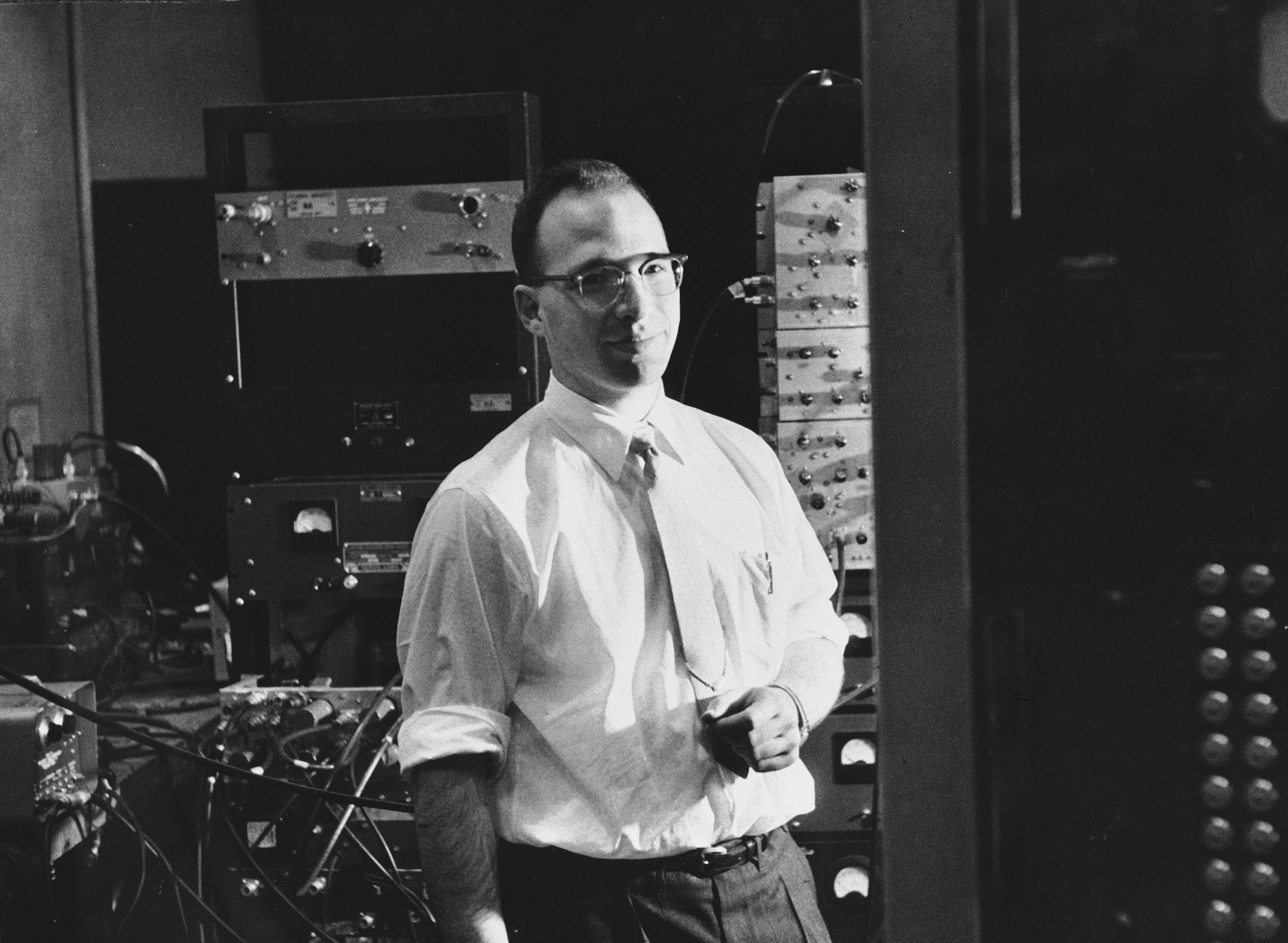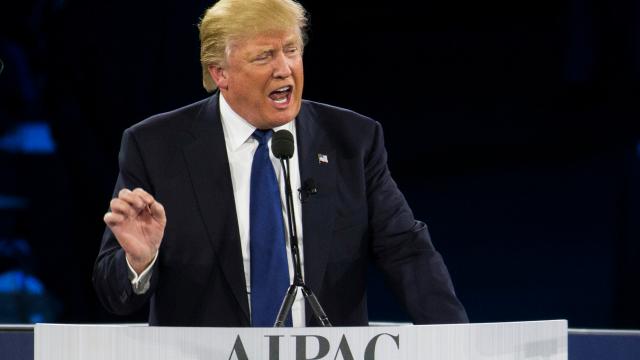Dozens of scientists have signed a letter to US President-elect Donald Trump asking him to honour the Iran Nuclear deal, saying it’s America’s best chance at preventing Tehran from developing the bomb.
“The worst deal ever negotiated.” Donald Trump speaking at the 2016 American Israel Public Affairs Committee (AIPAC) Policy Conference at the Verizon Center on 21 March 2016. (AP Photo/Evan Vucci)
As reported in the New York Times, the 37 signatories are urging Trump “to preserve this critical US strategic asset”. The scientists include Nobel laureates, nuclear scientists and former White House science advisers. The open letter was organised by physicist Richard L. Garwin, who has advised Washington on arms control and nuclear weapons for many years, and who helped to design the hydrogen bomb.
During the US election campaign, Trump referred to the Iran nuclear pact as a “disaster”, calling it “the worst deal ever negotiated”. In a speech to the American Israel Public Affairs Committee, he said it would be his “number-one priority… to dismantle the disastrous deal”, adding that the “problem is that [Iran] can keep the terms and still get the bomb by simply running out the clock”, and that they will “keep the billions and billions of dollars that we so stupidly and foolishly gave them”. Trump is concerned that Tehran will still be able to develop nuclear arms when the pact’s restrictions expire in 15 years.
The signatories of the open letter see it a bit differently, telling Trump: “Our technical judgment is that the multilateral [Joint Comprehensive Plan of Action (JCPOA)] provides a strong bulwark against an Iranian nuclear-weapons program.” The scientists point to several promising developments since the pact was signed, claiming that the agreement is working as planned.

In the 11 months since “implementation day”, Iran has dismantled and removed about two-thirds of its centrifuges, and it has exported about 95 per cent of its stockpile of low-enriched uranium — a springboard to weapon-usable enriched uranium. Iran is no longer capable of producing uranium with enrichment near the 20 per cent level needed to produce weapons, which it was able to do before the pact was signed.
In addition, Iran has disabled its heavy water reactor and filled it with concrete, and it’s allowing inspectors from the International Atomic Energy Agency (IAEA) to visit its facilities and investigate its supply chain. Steps have also been enacted to limit Iran’s plutonium production (an alternative material for nuclear weapons), and to ship any fuel that is produced by the plutonium out of the country.
As a result, the “breakout time” for Iran to produce enough highly enriched uranium for a nuclear weapon has increased to many months, from just a few weeks during the time that the nuclear pact was under negotiation, claim the scientists.
“In sum, the JCPOA has dramatically reduced the risk that Iran could suddenly produce significant quantities of nuclear-weapon materials,” conclude the scientists. “This has lowered the pressure felt by Iran’s neighbours to develop their own nuclear weapons options and none has announced a new dual-use nuclear program of its own.”
It’s not obvious how Trump will respond to this letter, or if he’ll alter his election promise to overturn the nuclear deal. According to the NYT, Trump’s pick for Defence Secretary, James N. Mattis, will likely advise him against abandoning the deal. His other advisers, such as Rex Tillerson (nominated for Secretary of State), may not share this opinion.
At the same time, it’s a safe bet that Israel will pressure Trump to honour his election promise. Both Trump and Israel may be unswayed by the argument that it will take Iran months, rather than weeks, to acquire the ingredients for a nuclear bomb. Prime Minister Benjamin Netanyahu strongly opposes the deal, claiming that the current plan threatens the survival of Israel. As the plan was being forged, Netanyahu said the deal would “not block Iran’s path to the bomb — it would pave it”. In addition to stricter anti-nuclear provisions, the Prime Minister wants Iran to recognise Israel’s right to exist, and for Iran to stop its aggression in the region.
Notable signatories of the letter include Stanford professor Siegfried S. Hecker, who once directed the Los Alamos weapons lab in New Mexico, and Rush D. Holt, a former nuclear physicists who now heads the AAAS.
